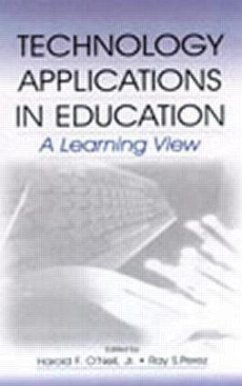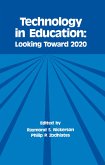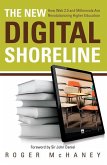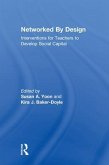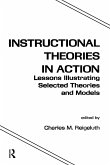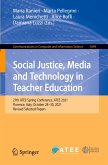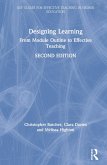This volume identifies promising learning, teaching, and assessment strategies for the use and assessment of technology in educational settings, specifically:
*educational context (e.g., organizational and structural factors that contribute to the effective use of technology in school settings);
*promising learning and teaching strategies;
*promising technology-based assessment procedures and methods;
*policy implementation issues; and
*a summary of current research on the effective use of technology in education.
Chapter authors represent a variety of perspectives and disciplines, from computer science, cognitive and educational psychology, and educational administration. Authors represent government, business, and university communities from within and outside the U.S. These multiple perspectives contribute to the overall understanding of current technology use in education and help in identifying future research needs. "Technology Applications in Education: A Learning View" explores the state of the art of technology in K-16 education from a learning perspective rather than a hardware/software view. It is designed for professionals and graduate students in the educational technology, training, assessment/evaluation, school administration, military psychology, and educational psychology communities.
This book is characterized in the following montage of factors:
*the primacy of learning as a focus for technology implementation;
*a focus on technology uses in K-16 education;
*a focus on the assessment of both individuals and teams;
*a broad variety of methodological approaches from qualitative to instructional design to quantitative(e.g., structural equation modeling);
*a need to support the development of technology-based curriculum and tools; and
*a need for theory-driven and evaluation studies to increase our knowledge.
Hinweis: Dieser Artikel kann nur an eine deutsche Lieferadresse ausgeliefert werden.
*educational context (e.g., organizational and structural factors that contribute to the effective use of technology in school settings);
*promising learning and teaching strategies;
*promising technology-based assessment procedures and methods;
*policy implementation issues; and
*a summary of current research on the effective use of technology in education.
Chapter authors represent a variety of perspectives and disciplines, from computer science, cognitive and educational psychology, and educational administration. Authors represent government, business, and university communities from within and outside the U.S. These multiple perspectives contribute to the overall understanding of current technology use in education and help in identifying future research needs. "Technology Applications in Education: A Learning View" explores the state of the art of technology in K-16 education from a learning perspective rather than a hardware/software view. It is designed for professionals and graduate students in the educational technology, training, assessment/evaluation, school administration, military psychology, and educational psychology communities.
This book is characterized in the following montage of factors:
*the primacy of learning as a focus for technology implementation;
*a focus on technology uses in K-16 education;
*a focus on the assessment of both individuals and teams;
*a broad variety of methodological approaches from qualitative to instructional design to quantitative(e.g., structural equation modeling);
*a need to support the development of technology-based curriculum and tools; and
*a need for theory-driven and evaluation studies to increase our knowledge.
Hinweis: Dieser Artikel kann nur an eine deutsche Lieferadresse ausgeliefert werden.

